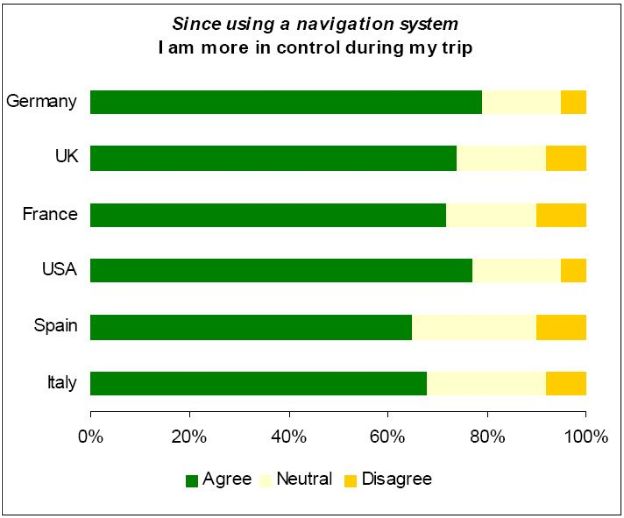
The instrumented vehicle study conducted by TUV and DLR (Germany) and Virginia Tech Transportation Institute (the USA) was designed to be comparable to the instrumented vehicle study conducted in the Netherlands by TNO (Vonk et al., 2007). The effects of driving with a navigation system on driving behaviour and on workload were investigated in a real life drive or driving situation.
Subjects had to drive several routes on different road types while their driving behaviour and workload were assessed. Subjects drove both with a navigation system and with conventional methods like paper maps and printed instructions from internet route planners.
Overall on the different aspects of driver awareness the users indicate they feel more relaxed, more in control and more alert even though drivers indicate they do operate the navigation system while driving. Over 65% of the users in all countries agree with the statement that they are more in control during their trip since they are using a navigation system.
From the survey study in the Netherlands (Vonk et al., 2007) it was also concluded that drivers indicated they were more alert when driving with a navigation system. Approximately 80% of the users indicate that they feel more in control when driving with a navigation system. Alertness showed lower results in the Netherlands, but still 45% of the users claimed to be more alert using a navigation system.
Also view:
• GPS and Road Safety
• GPS Navigation Technology and buying a GPS Device
• GPS works best in partnership with common sense